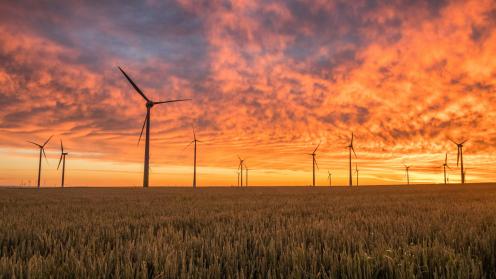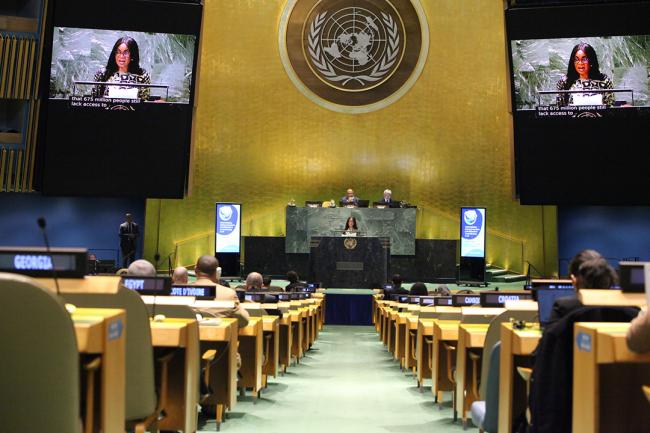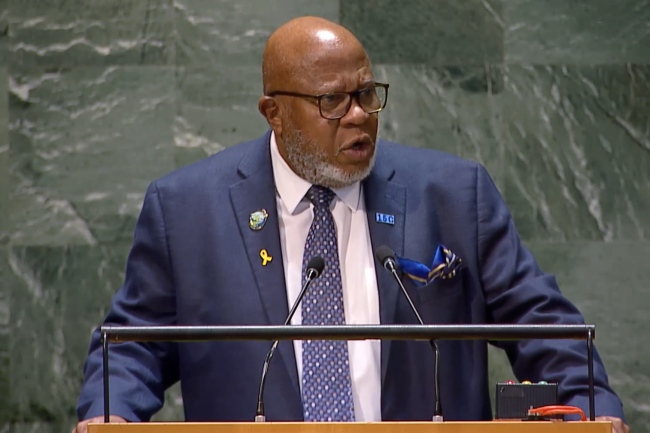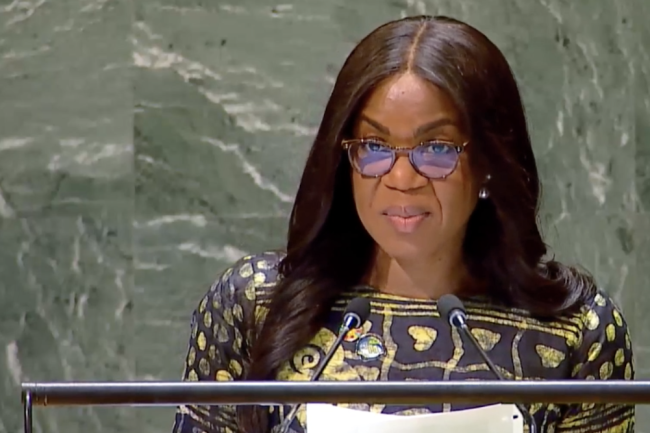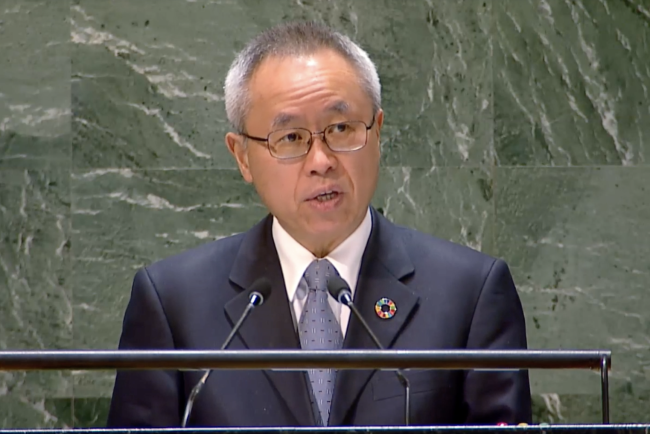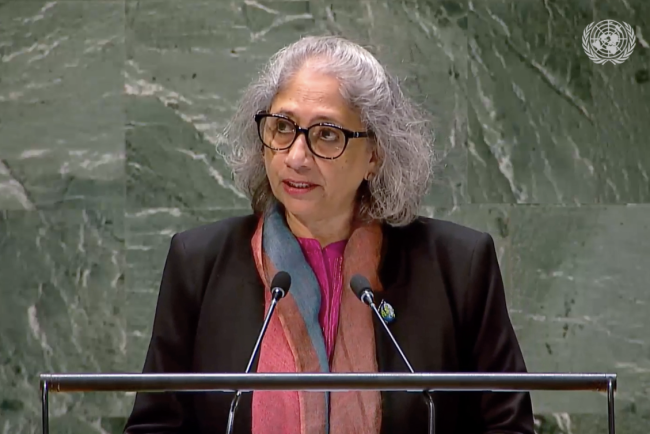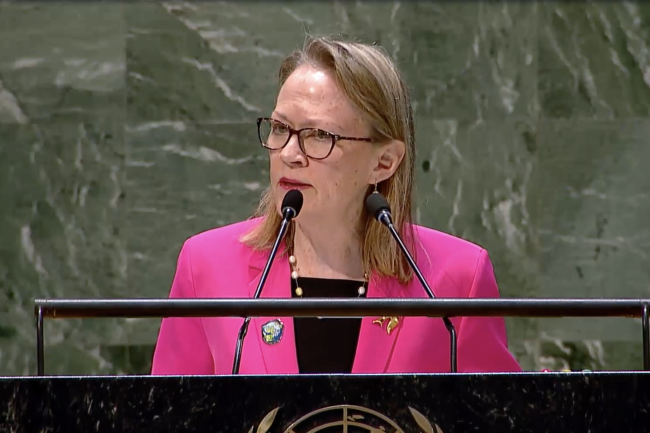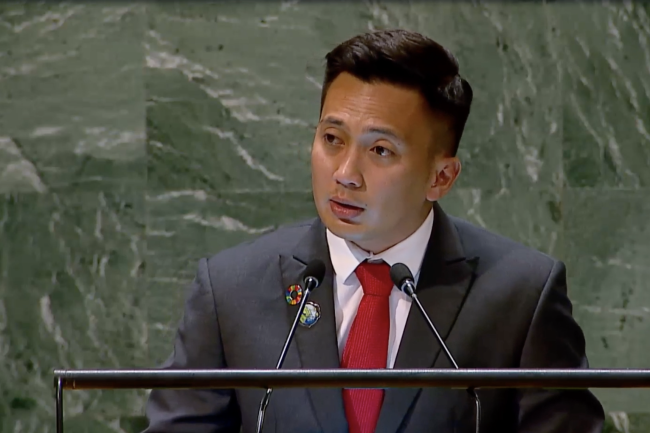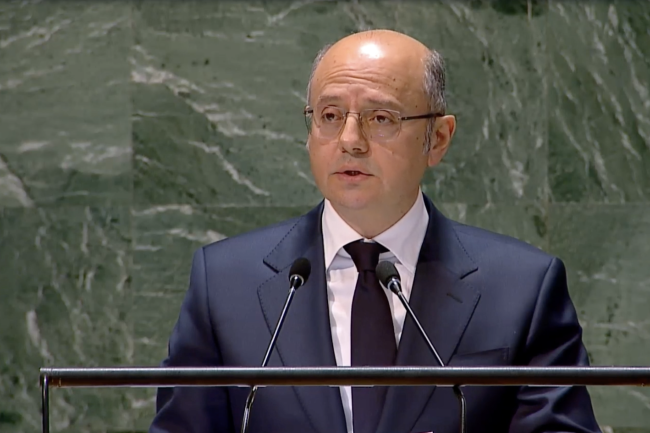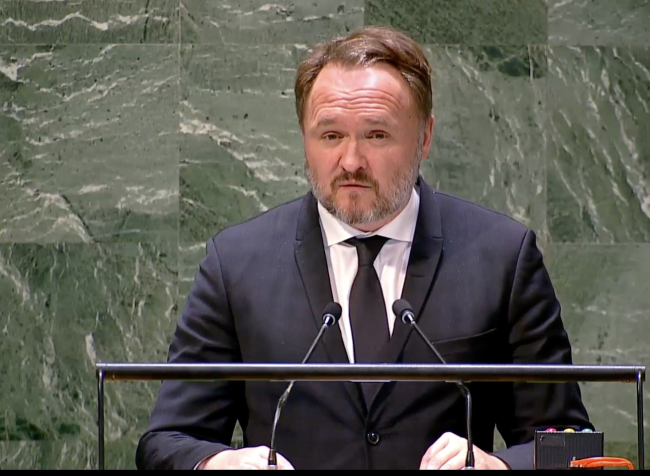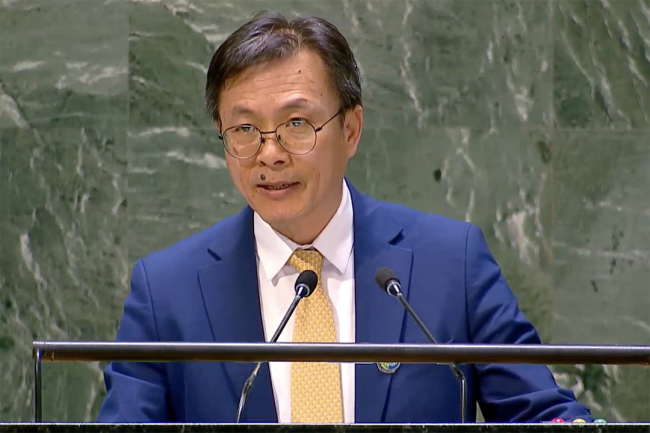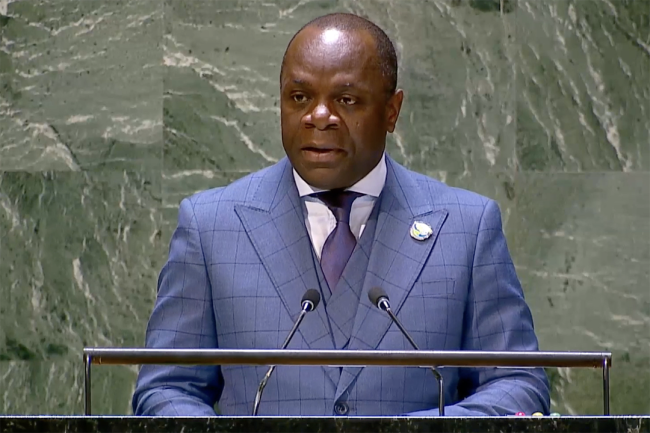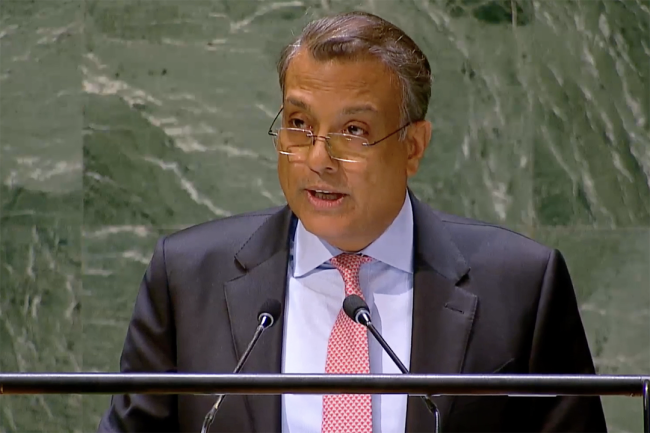The world is seeing a steady growth in renewable energy capacity but the pace is too slow to enable achievement of Sustainable Development Goal (SDG) 7 (affordable and clean energy) by 2030. This fact was broadly acknowledged during the Global Stocktaking on SDG7. Consequently, to accelerate progress and steer the world towards its achievement, Dennis Francis, President of the UN General Assembly, issued a call to action at the end of this stocktaking session. He urged prioritizing measures to ensure electricity access for the more than 600 million people lacking it and to provide clean cooking solutions for the over 2 billion people currently relying on harmful fuels.
The Global Stocktaking on SDG7 opened on Friday morning, with Dennis Francis highlighting the completion of the UN Decade of Sustainable Energy for All 2014-2024. Noting mixed results and slow progress, he called for urgent action to sustain momentum, including tripling renewable energy capacity, doubling energy efficiency, and achieving universal access to affordable sustainable energy.
Damilola Ogunbiyi, Special Representative of the Secretary-General for Sustainable Energy for All and Co-Chair, UN-Energy, urged aligning UN mechanisms, developing institutional arrangements, and scaling up partnerships to address barriers to the needed clean energy transitions. Li Junhua, Under-Secretary-General for Economic and Social Affairs, emphasized the need to accelerate efforts toward universal clean energy access, gender equality, environmental protection, and climate change mitigation, highlighting the UN's role as a global convener.
Participants then engaged in two thematic debates, with the first focusing on “Closing the energy access gap and transitioning to decarbonized energy systems” and the second on “Addressing energy’s interlinkages and strengthening means of implementation and partnerships.” During the first debate, Ligia Noronha, UN Assistant Secretary-General and Head, UN Environment Programme (UNEP), New York Office, highlighted the global challenge of reducing greenhouse gas emissions while simultaneously addressing energy poverty, and identified clean, efficient and affordable energy as the solution. Zagy Yakana Berian, Founder, Society of Renewable Energy, SDG7 Youth Constituency, underlined the influence of youth-led efforts in driving essential energy transitions, calling for youth to play active roles rather than simply observing.
In the subsequent discussion, UN Member States called for accelerating action to achieve SDG7, with many describing national efforts in this regard. Many identified lack of access to finance and investment as a major barrier. Many Member States also highlighted the UAE Consensus adopted during the 2023 UN Climate Change Conference in Dubai, and its call for, inter alia, transitioning away from fossil fuels.
During the second debate, Alain Wilfried Biya, International Renewable Energy Agency (IRENA), stressed that without means of implementation energy transition will remain wishful thinking. He called for public-private partnerships, scaling up bankability of projects in developing countries, enhancing policies and skills, and considering the role of trade.
Participants discussed challenges to energy transition such as high upfront costs, lack of capacity and difficulty accessing the needed technology. They called for expanding renewable energy, for instance, through investing in the electricity grid and establishing new access initiatives focusing on the African region.
The meeting was brought to a close at 5:09 pm.
